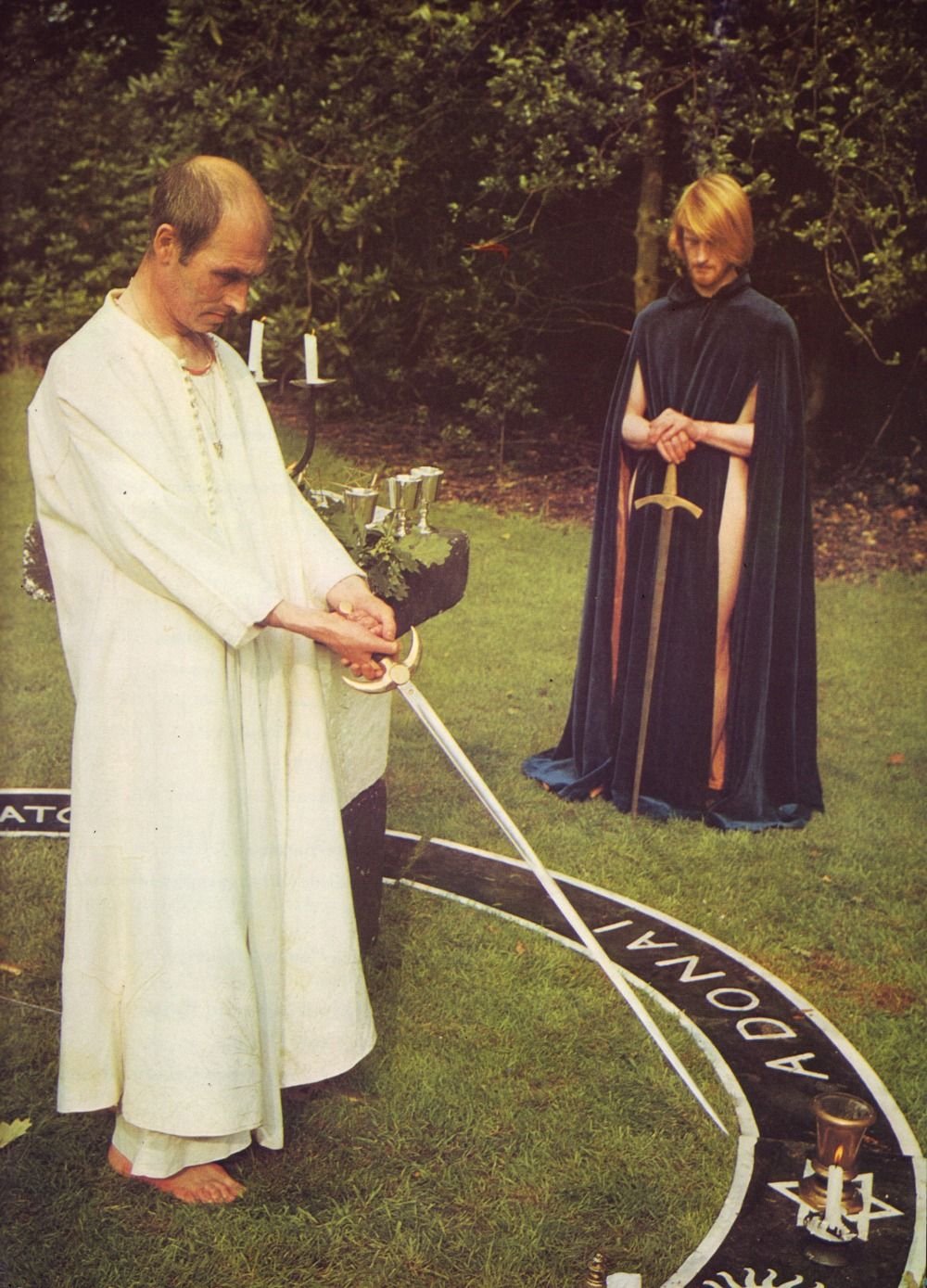
Witchcraft, Pointy Bits and the Law
On 1 July 2025 stronger weapons legislation came into effect here in South Australia as the government’s response in an attempt to combat the increase of incidents that have included the use of knives and machetes. Despite the majority of such incidents having occurred interstate, South Australia now has the toughest weapons legislation in Australia, that particularly targets minors and the carrying of “prohibited weapons” in public places.
Previous changes to the legislation saw various knives, including those with double-edged blades, being classified as “prohibited weapons”, i.e., illegal to have unless you fell under an exemption. The changes that have recently come into effect now include not only machetes, but also swords, as being classified as “prohibited weapons”.
Since 2000, which saw my initial involvement with changes to the Summary Offences Act 1953, a lot has happened – including the demise of pagan organisations, not to mention how witchcraft, and possibly even paganism, is perceived these days. We also appear to be in a world where what defines “religion” ebbs and flows.
As an initiate of contemporary witchcraft, a religious form of witchcraft, the use of a double-edged blade (my athame) is part of my religion. Depending on the rite, or ceremony, a sword is sometimes interchanged. With light of these recent changes, especially with the emphasis being on “public places”, I was naturally curious as to whether the Schedule 2 Exemptions still applied, in particular Clause 7 for “Religious Purposes”. And if so, without there now being any kind of pagan organisation to belong to (as were the requirements for other exclusions, i.e., holding Scottish daggers, etc), if approached by the police, would I need to “prove” my religion and if so, how.
fter conflicting email advice, I finally spoke to an Operations Inspector who confirmed that providing I was conducting myself in a mindful manner, i.e., not running around banishing the sword in a threatening manner, that Clause 7 under Schedule 2 would apply. Further, it was personally reassuming to be advised that the police were (for the most part) aware of “pagan religions”, and that the more recent legislation changes were targeted more towards the increase in youth crime.
Clause 7 specifically states:
A person is an exempt person for the purposes of an offence of possession of a prohibited weapon under section 21F(1)(b) of this Act in relation to the possession of a knife (other than a butterfly knife, flick knife, push knife or trench knife) or dagger if—
(a) the person is a member of a religious group; and
(b) the person possesses, wears or carries the knife or dagger for the purpose of complying with the requirements of that religion.
It is important to note that if this or any other exemption does not apply to your possession and use of a prohibited weapon, maybe you should consider surrendering the weapon to a police officer, due to the fines and potential jail terms that could be applied. Likewise, if you utilise your “prohibited weapon” in public in what could be perceived as a threatening in dangerous manner.
It seems ironic to have to remind people that a degree of self-responsibility applies, yet in a society that is increasingly “rebelling” against any kind of authority, or sheer ignorance (or is it arrogance) when it comes to “personal freedom”, it might be worthwhile remembering that especially here in South Australia, as in NSW, there is actually no legislation that specifically prohibits discrimination on the basis of religious belief.
So, don’t be an idiot if you wish to carry your do double-edged blade or sword in public spaces. For if you are one, even Clause 7 won’t protect you.
NB: If you are not a “religious witch”, or classify yourself as a magician or something else, then you might need to undertake your own investigation as to whether you are able possess a “prohibited weapon”.
Contact the Firearms Branch of SA Police.
Legislation/Web Sites:
Public consultation call July 2024: Tackling knife crime in South Australia | YourSAy
Current South Australian Legislation: Summary Offences Act 1953
Attorney-General’s Department advice: Knife Crime Laws | Attorney-General's Department
SA Police advice: SAPOL - Changes to knife laws
SA Police information about prohibited weapons etc: SAPOL - Prohibited weapons, items and explosives
SA Premier’s announcement: Surrender period announced as nation’s toughest knife laws take effect
